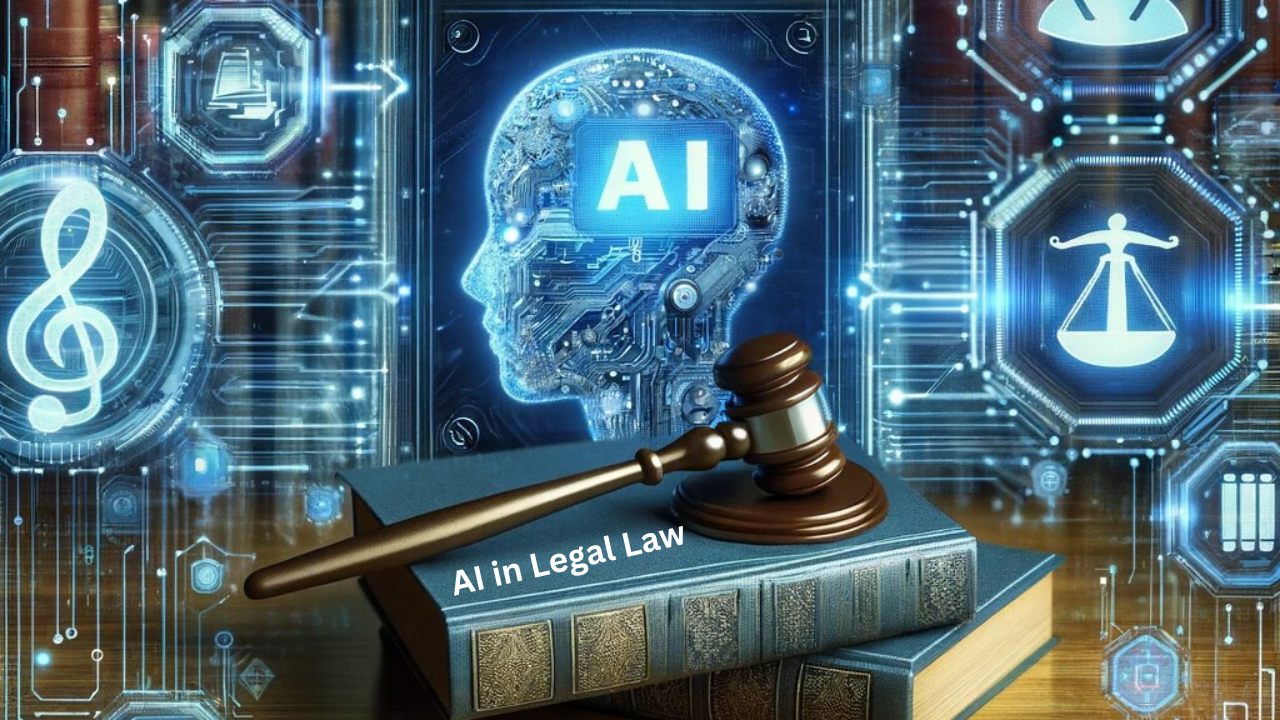Explore the impact of AI in legal law, from automation to predictive analytics. Discover how AI is reshaping the legal landscape and what it means for the future of law.
Table of Contents
Introduction:
In recent years, the integration of Artificial Intelligence (AI) into the field of legal law has sparked a profound transformation, revolutionizing traditional practices and paving the way for unprecedented advancements. From streamlining processes to enhancing decision-making, AI has become a formidable ally for legal professionals worldwide.
Understanding AI in Legal Law
Fundamentally, AI entails machines, especially computer systems, simulating human intelligence processes. In the realm of legal law, AI encompasses various technologies and applications designed to assist lawyers, judges, and other legal professionals in their daily tasks. These applications range from document analysis and contract review to case prediction and legal research.
The Role of AI in Legal Research
AI has made a notable impact on legal practice by simplifying the process of legal research. Traditionally, legal research demanded substantial manual effort, as lawyers had to meticulously search through numerous documents and precedents to uncover pertinent information.
However, with the advent of AI-powered legal research platforms, such as ROSS Intelligence and LexisNexis, this process has been revolutionized.
These platforms utilize natural language processing (NLP) and machine learning algorithms to analyze vast amounts of legal data rapidly, providing lawyers with actionable insights and relevant case law in a fraction of the time.
Automation in Legal Processes
Another area where AI is making significant strides in legal law is automation. Routine legal tasks, such as drafting contracts, analyzing documents, and reviewing evidence, can be time-consuming and labor-intensive.
However, AI-powered tools, such as contract management systems and e-discovery platforms, are automating these processes, allowing legal professionals to focus their time and energy on higher-value tasks.
By automating repetitive tasks, AI not only increases efficiency but also reduces the likelihood of human error, ensuring greater accuracy and consistency in legal proceedings.
Predictive Analytics and Case Prediction
Perhaps one of the most intriguing applications of AI in legal law is predictive analytics. By analyzing historical data and patterns, AI algorithms can predict case outcomes with remarkable accuracy, helping lawyers and litigants make more informed decisions.
Predictive analytics tools, such as Blue J Legal and Premonition, leverage machine learning algorithms to assess various factors, such as judge rulings, case law, and precedent, to forecast the likelihood of success in legal proceedings.
This empowers legal professionals to strategize more effectively and allocate resources more efficiently, ultimately leading to better outcomes for their clients.
Ethical and Regulatory Considerations
While the integration of AI in legal law offers numerous benefits, it also raises important ethical and regulatory considerations. As AI algorithms become increasingly sophisticated, there is a growing concern about bias and fairness in decision-making.
For example, AI algorithms trained on historical data may perpetuate existing biases within the legal system, leading to unjust outcomes. Additionally, the use of AI in legal proceedings raises questions about accountability and transparency.
Who is ultimately responsible for decisions made by AI systems? How can we ensure transparency and accountability in AI-driven legal processes?
References:
FAQs:
What is AI in legal law?
- AI in legal law refers to the integration of artificial intelligence technologies and applications into the field of law to enhance efficiency, streamline processes, and improve decision-making.
How is AI used in legal research?
- AI is used in legal research to analyze vast amounts of legal data rapidly, providing lawyers with actionable insights and relevant case law in a fraction of the time compared to traditional methods.
What are some examples of AI-powered legal tools?
- Examples of AI-powered legal tools include contract management systems, e-discovery platforms, and predictive analytics tools.
What are the ethical considerations of using AI in legal law?
- Ethical considerations of using AI in legal law include concerns about bias and fairness in decision-making, accountability, and transparency in AI-driven processes.
How accurate are predictive analytics tools in legal proceedings?
- Predictive analytics tools can predict case outcomes with remarkable accuracy, helping legal professionals make more informed decisions and strategize effectively.
Conclusion
In conclusion, AI is transforming the legal landscape in unprecedented ways, offering legal professionals new opportunities to enhance efficiency, streamline processes, and improve decision-making. From automated document review to predictive analytics, the applications of AI in legal law are vast and far-reaching.
However, as with any technological advancement, it is essential to consider the ethical and regulatory implications to ensure that AI is used responsibly and ethically in the legal domain. By harnessing the power of AI responsibly, legal professionals can unlock new possibilities and drive innovation in the legal industry.

